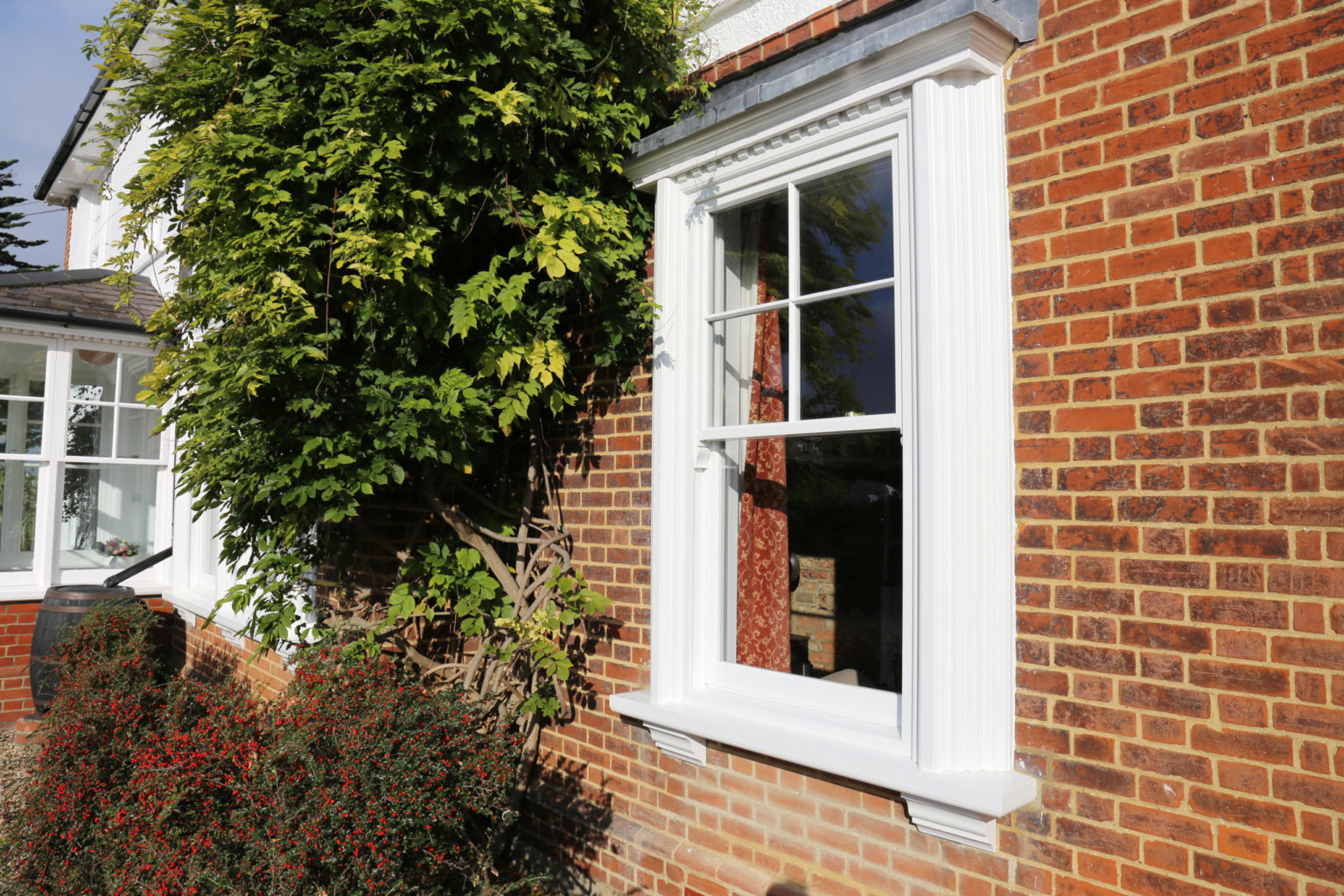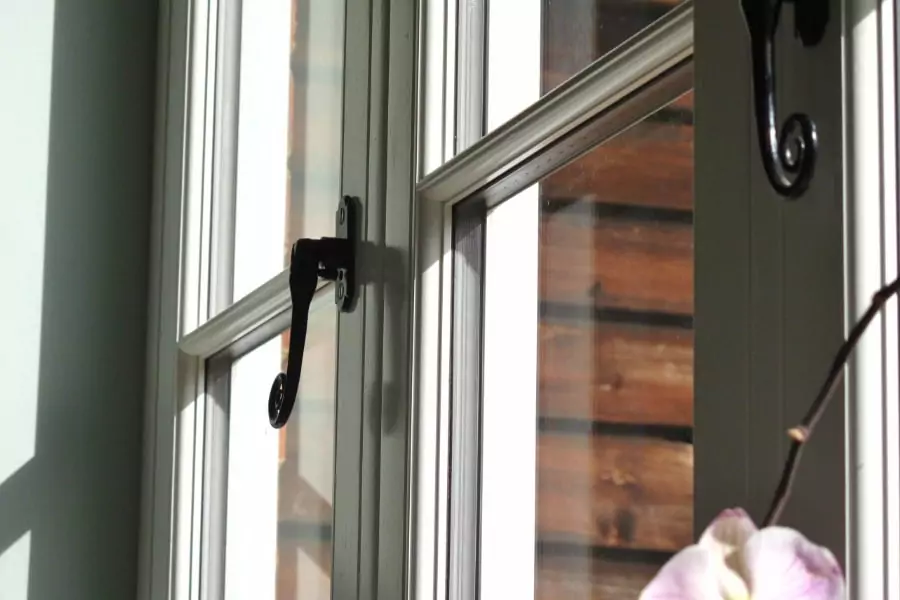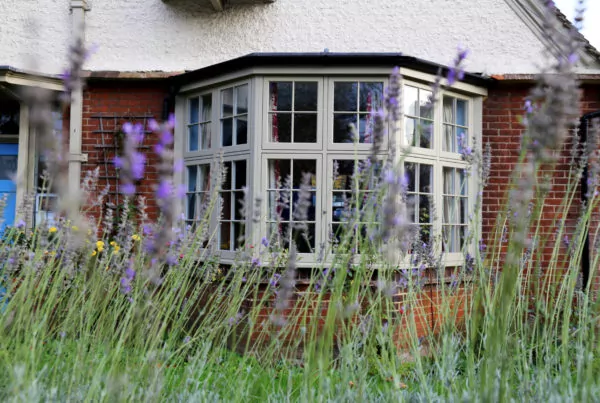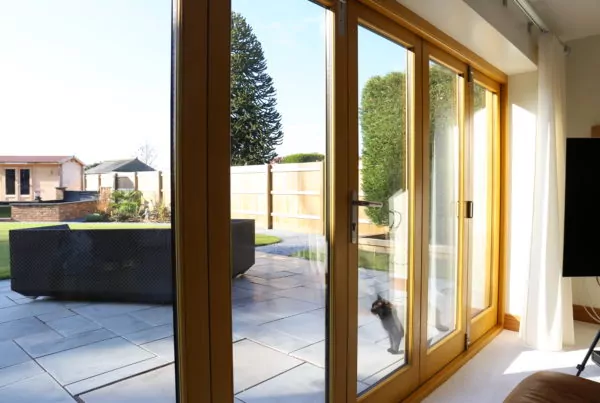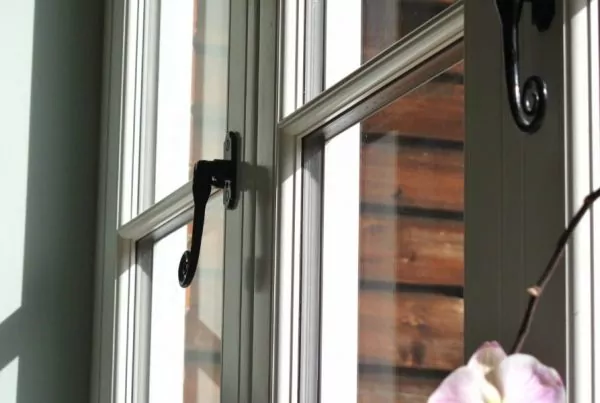If you’re considering a window upgrade and are unsure on whether uPVC or timber is the right choice for you, then look no further than our comparison below. Here we take a look at the advantages and disadvantages of each, helping you to make the right choice for your home.
uPVC vs Timber Windows
uPVC windows are a popular choice for UK homeowners, the general consensus being that they’re cheaper and better for double glazing. But is that true? Or are there other factors that need to be considered before discounting timber windows? Let’s take a look at the head-to-head below and compare.
| Benefit | uPVC Windows | Timber Windows |
|---|---|---|
| BUDGET | If you have a tight budget to stick to then uPVC windows will be cheaper in the short-term. | Granted, timber windows are more expensive upfront but the total costs are balanced out in the longer term. |
| PRICE | Based on a typical 90 x 60 casement window: | Based on a typical 90 x 60 casement window: |
| MAINTENANCE | Maintenance with uPVC is minimal but over time the material can become discoloured, and brittle. At which point complete replacement is necessary. | Good timber windows will only need a quick coat of paint every 7-10 years in order to be well-maintained. |
| LIFETIME | uPVC windows typically last between 15 – 20 years before they need replacing. | If timber windows are well-maintained they can last up to 70 years or more. |
| SECURITY | uPVC tends to have a steel core, which makes it extremely difficult to cause damage to, let alone break-in. | Good, solid timber windows will comply with the new Part Q Building security standards. |
| INSULATION | Fitting double glazing within the uPVC window frames will keep your home well insulated and offer good noise cancelling. | Timber is a naturally insulating material that provides better performance than uPVC. |
| APPEARANCE | While uPVC windows do offer more style options and even faux wood grain, they are the single biggest threat to property values in conservation areas. | Timber windows on the other hand can create a huge ‘curb-appeal’ with 82% of estate agents feeling that original features add value to period properties. |
| ENVIRONMENTALLY FRIENDLY | uPVC frames are essentially plastic and metal, so are highly processed and hard to recycle which means they end up in landfill. | With timber windows, you’re working with organic materials that are not only more sustainable but (if maintained) last considerably longer. |
Should you choose uPVC?
Certainly, uPVC does have some merits; it’s cheap, fairly robust, and provides good insulation for your home. However, those benefits are weighted toward short-term gains, and, eventually, they will cost you more in the future. Take their lifespan, for instance – uPVC lasts just a third of the time timber windows do which means they’ll likely need replacing far sooner than expected. They could also have a detrimental effect on the value of your home, particularly if yours is a period property, and as for their carbon footprint and sustainability scores, well, they’re less than desirable.
Or is timber the winner?
Clearly, there are some drawbacks to timber windows. They’re more expensive and they do require a general maintenance coat of paint every 8-10 years. However, as it’s already been touched on, timber windows offer far better longevity and are an investment that could potentially save you money in the long-term. As well as immediately adding value to your home, the environmental credentials of timber windows cannot be beaten; not only is wood renewable but with some light maintenance, timber windows could outlast you!
In short, uPVC is not the ideal option for either the planet or your pocket, and while there are many reasons why you should choose timber windows the biggest is this: you can be safe in the knowledge you’ve made a good choice for both yourself and for the environment.
Why choose Andrew Jaynes timber windows?
As Kent’s leading manufacturer and installer of timber windows, our ethos is focused on ‘long life and high performance’, providing our customers with quality products that will stand the test of time.
The key feature of our windows is the material: Accoya wood. Put simply, Accoya is a modified pine that has undergone non-toxic treatments to enhance its longevity. These treatments increase the wood’s resistance to rot and mean that it has almost no moisture-related swelling or shrinking, making it the perfect wood for timber windows. In fact, we’re so confident in its durability that each Accoya timber window we fit comes with a 50-year guarantee.
Our love for Accoya doesn’t stop there. Accoya has impressive environmental credentials and boasts a much shorter harvest time of only 27 years compared to 60-100 years for hardwood timbers. This makes it one of the most responsible and sustainable timber choices, and our preferred wood for precision factory finished timber windows.
Want to know more?
Why not get in touch with one of our timber window experts who can answer any questions, concerns, or queries we haven’t covered here.


